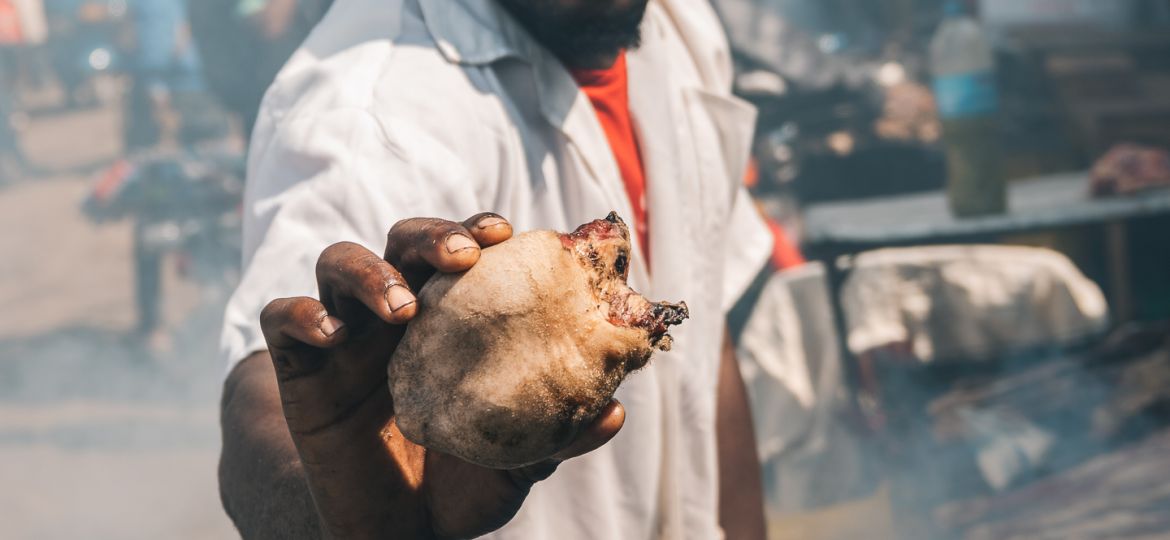

How To Avoid Food Poisoning As A Solo Traveler
Trust me, the last thing you want is food poisoning on vacation. And as someone who likes to try everything, I have been there many times. Don’t worry, I’ll spare you the details.
However, what I can offer is some advice to be an adventurous eater and stay safe. Obviously, I’m not a doctor, so take this how you may. This is just the advice of someone who has eaten of different places.
The Main Issue With Eating In Other Countires
Believe it or not, the most probable reason you may get sick eating in a foreign country is not the food itself. In reality, it’s the bacteria of the food/water of the place you’re in. That’s not to say there aren’t any sanitary issues to look out for, but if you use common sense and the tips in this guide, I think you’ll be ok.
Consult A Doctor Before You Go
Before I go on any trip, I always go to a local travel clinic to make sure I’m up to date on all my vaccines. While I’m there, if I know I’m going somewhere with potentially unsafe food, I get the doctor to prescribe me medication for food poisoning. On the off chance, I have had to take it, the meds work way faster than anything you can get OTC and have me back on my adventures in no time.
If this option isn’t available for you, be sure to pack some peptobismol in your first aid kit. I usually bring this with me anyways and pair it with probiotics to replace the healthy bacteria in my gut.

Try To Drink Bottled Water, If Available
When you leave your home country, you leave behind the bacteria that your gut is accustomed to for something completely new to your digestive track. In turn, ingesting these new bacteria will cause your gut to react in sometimes extreme ways. To add to that, different countries have both different chemicals in the water and different filtration methods that can add to the unfamiliarity.
All this means is that you have to be careful where you drink your water from. Even some places you may think are OK to drink from may not be. Take for instance my trip to Mount Kilimanjaro in Tanzania. On the way up, the guides would drink straight from the glacier. However, the tourists cannot since the bacteria in the otherwise fresh water would case a reaction.
It’s best to look up whether or not the tap water is safe to drink before you get to your destination. If it is, then don’t worry. If it’s not, stick with sealed, un-opened bottles of water (sometimes they re-fill the bottles with unsafe water). If bottled water isn’t an option, I always suggest bringing your own filtration system in case of emergencies. I used the GeoPress filter from Grayl.
Lastly, be careful of ice, as it’s the same as tap water. You don’t have to be as cautious with ice, but just make sure the ice is uniform and you should be ok.



Look For Hot Food
When you cook food properly, germs are killed off by the heat. On the other hand, room temperature food promotes germ growth. Thus, especially in the streets, it’s important to not just eat cooked food, but to make sure the food served steaming or smokey, so you know it was freshly cooked.
Make Sure Meat Is Stored Safely
This goes hand in hand with making sure your meat is hot and cooked fully through. You want to keep an eye on how long the food has been sitting out. Foods that sit out for a long time are generally less safe to eat. At the same time, checking for proper raw meat storage like a freezer is always a good idea.
Pick Fruits With Peels
The outsides of fruits hold on to a lot of germs that won’t necessarily come off when you wash them. Things like apples or grapes are prime examples of foods to avoid.
Of course, you can. opt to peel off the skin, which most restaurants will happily do for you. But if you have the choice, pick fruits like bananas or oranges that have a protective outer layer that you won’t eat.

Eat Local And Busy
In general, local dishes tend to be made properly and prepared the right way. Similarly, a busy vendor will have the freshest food, as the ingredients will sit out less as more people come to eat. I try to find places that are especially packed with locals. In my experience, these places are not only the best tasting, but are trusted by the people.
Wash Your Hands Before Eating
You should do this anyways, but it’s important to wash your hands before you put any food in your mouth. I keep plenty of hand sanitizer in my kit so I can eat at a moment’s notice. Got to keep my priorities right!





